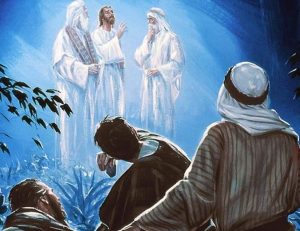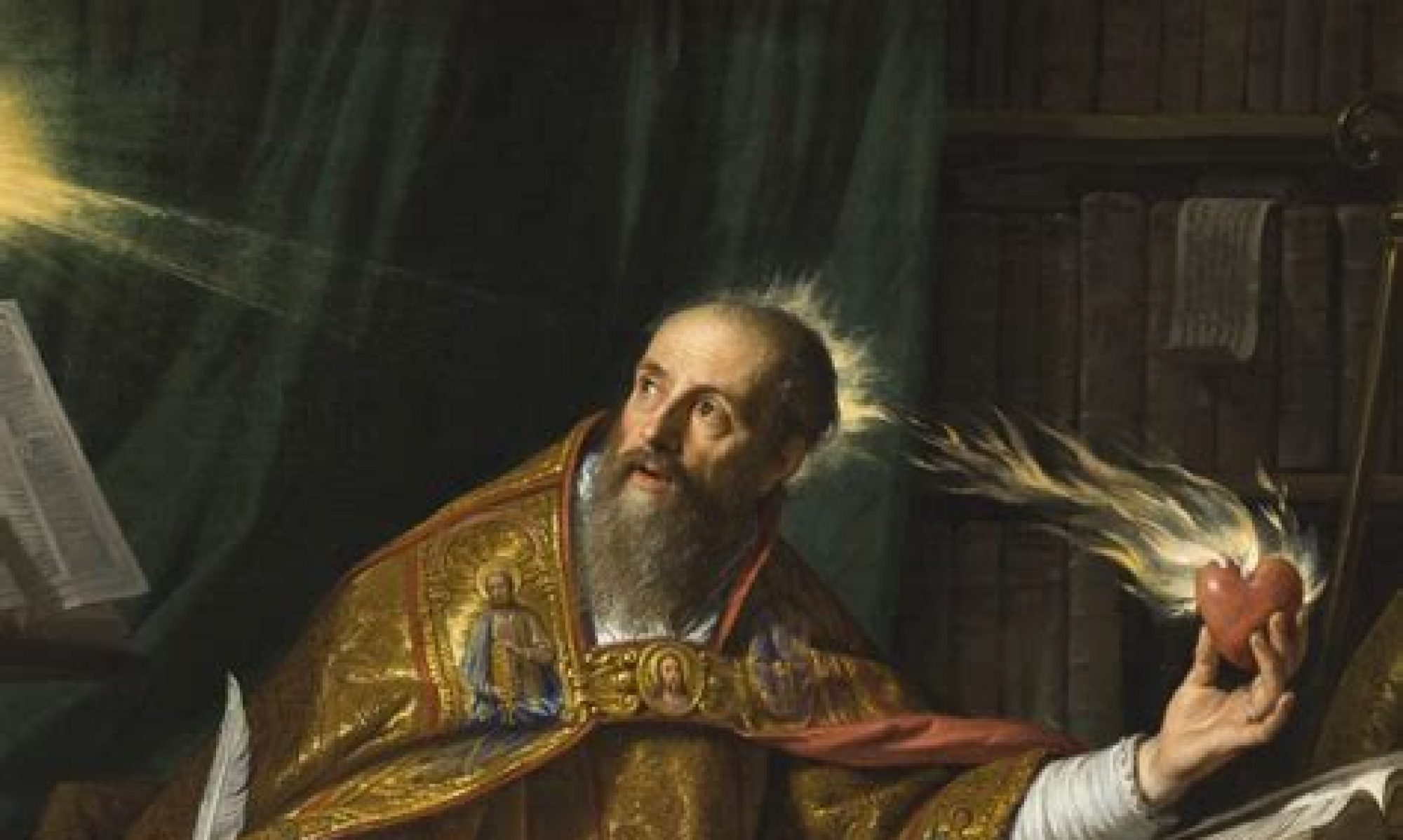Today is the second Sunday of Lent. How are we handling our journey of Lent? Are we turning ourselves closely towards God, or are we just timid and frightened to respond to God’s invitation to repent and change? We are constantly encouraged to reflect intensely on the Word of God in order to find inspiration and motivation to be transformed.
We have heard the first reading taken from the Book of Genesis which narrates to us about Abraham’s and his family’s journey towards the promised land. Despite his old age, he accepted the mission from God to lead the Israelites towards the place promised to them by God. Though an unknown place for him, his faith dictates to him to follow God’s promise, “I will make you a great nation, and I will bless you, make you great and for you will be a blessing” to others.
Just as we are blessed by God, like Abraham, we too must become a blessing to other people. Remember your experience of feeding the hungry and clothing the homeless person or being with someone praying for sick or dying persons. It is an uplifting moment when we become a blessing to them for which we feel deep joy and comfort, not only for the people we help, but also for ourselves.
The second reading today from the 2nd Letter of St. Paul to Timothy reminds us to “Bear your share of hardship for the gospel with the strength that comes from God.” St. Paul is encouraging Timothy to persevere carrying out his mission and showing support needed to be faithful and holy thru the grace of Christ Jesus. There are some difficult consequences related to their commitment to Jesus, but promise is given to those following the gospel with life and immortality.
The gospel story is about the transfiguration of Christ. Jesus, together with Peter, James, and John, went up to the mountain. These three disciples were given the rare opportunity to witness an extraordinary religious experience. Maybe Jesus brought them so that they may share with other disciples when the time comes. We know that they were warned by Jesus saying, “Do not tell the vision to anyone until the Son of Man has been raised from the dead.”
What are important lessons and spiritual insights we derive from this story about the transfiguration?
First, Jesus has enlightened us that He is the fulfillment of salvation history. St. Matthew writes this, “He was transfigured before them; his face shone like the sun and his clothes became white as light.” And behold, Moses and Elijah appeared to them, conversing with Jesus. It is an extraordinary event witnessed by his three apostles, where Moses represented the “Law” and Elijah represented the Prophets. This is a significant description in the story to see Jesus being the central actor.
Second, Peter, James and John were called to accompany Jesus on the mountain. Abraham was called by God to lead his people which eventually became a great nation. Timothy was chosen to lead the Christians of Ephesus. I have come to the conclusion that God has chosen individuals to take a special roles for God which they have not chosen beforehand. God called personalities to cooperate with Him, to tread the path that God has intended them to do. We must also be open and attentive to what God has been calling us. We need to pray about it.
Third, “Transfiguration” is indeed a revelation and tangible presence of God felt by Peter, James, and John. They were not transfigured per se, but I am sure that they were changed by their own experience.
I know that in this season of Lent, there are many experiences we have encountered, but we never have the time to recall or to reminisce within our consciousness and hearts that which speaks about the real presence of God. Our experiences of love, kindness from people we don’t even know, and fascinating spiritual moments filled with awe and wonder make us yearn for more which we never expected to cause us to change as a person Those beautiful transforming experiences draw us closer to the Lord.
This is also our own “Transfiguration.” Our intense desires to look back, in retrospect, and cravings to go over the most consoling event in our life graciously give us that moment of God’s presence. We might think that like the three apostles, we become fixated not to go down from the mountain of our transfiguration. However, we need to wake up and follow Jesus, not to look for comfort, but rather ready to be with Him in His passion, death, and resurrection.
We have the promise to look forward; that is our final eternal abode. God bless you,
Fr. Arlon, osa
———————————
El dictado del corazón: segundo domingo de Cuaresma, año A
- Génesis 12-1-4A
- Salmos 33:4-5, 18-19, 20, 22
- 2 Timoteo 1:8B-10
- Mateo 17:1-9
Hoy es el segundo domingo de Cuaresma. ¿Cómo estamos llevando nuestro camino de Cuaresma? ¿Nos estamos acercando más a Dios, o simplemente estamos tibios y temerosos de responder a la invitación de Dios a un cambio reno nuestra vida? Se nos anima constantemente a reflexionar intensamente sobre la Palabra de Dios para encontrar inspiración y motivación para ser transformados.
Hemos escuchado la primera lectura tomada del Libro del Génesis que nos narra el camino de Abraham y su familia hacia la tierra prometida. A pesar de su vejez, aceptó la misión de Dios de conducir a los israelitas hacia el lugar que Dios les había prometido. Aunque es un lugar desconocido para él, su fe le dicta seguir la promesa de Dios: “Haré nacer de ti un gran pueblo y te bendeciré. Engrandeceré tu nombre y tú mismo serás una bendición.
Así como somos bendecidos por Dios, como Abraham, también debemos convertirnos en una bendición para otras personas. Recuerda tu experiencia de alimentar al hambriento y vestir a la persona sin hogar o estar con alguien orando por los enfermos o moribundos. Es un momento edificante cuando nos convertimos en una bendición para ellos por lo que sentimos una profunda alegría y consuelo, no solo por las personas a las que ayudamos, sino también por nosotros mismos.
La segunda lectura de hoy de la segunda carta de San Pablo a Timoteo nos recuerda “Comparte conmigo los sufrimientos por la predicación del Evangelio, sostenido por la fuerza de Dios”. San Pablo está animando a Timoteo a perseverar en el cumplimiento de su misión y mostrando el apoyo necesario para ser fiel y santo por la gracia de Cristo Jesús. Hay algunas consecuencias difíciles relacionadas con su compromiso con Jesús, pero se les da una promesa a los que siguen el evangelio con vida e inmortalidad.
La historia del evangelio trata sobre la transfiguración de Cristo. Jesús, junto con Pedro, Santiago y Juan subieron al monte. A estos tres discípulos se les dio la rara oportunidad de presenciar una extraordinaria experiencia religiosa. Tal vez Jesús los trajo para que puedan compartir con otros discípulos cuando llegase el momento. Sabemos que fueron advertidos por Jesús diciendo: “No le cuenten a nadie lo que han visto, hasta que el Hijo del hombre haya resucitado de entre los muertos”.
¿Cuáles son las lecciones importantes y las percepciones espirituales que derivamos de esta historia sobre la transfiguración?
Primero, Jesús nos ha iluminado que Él es el cumplimiento de la historia de la salvación. San Mateo escribe esto: “Se transfiguró delante de ellos; su rostro resplandeció como el sol y su ropa se volvió blanca como la luz. Y he aquí, se les aparecieron Moisés y Elías, conversando con Jesús. Es un evento extraordinario presenciado por sus tres apóstoles, donde Moisés representaba la “Ley” y Elías representaba a los Profetas. Esta es una descripción significativa en la historia para ver a Jesús como el actor central.
Segundo, Pedro, Santiago y Juan fueron llamados a acompañar a Jesús en la montaña. Abraham fue llamado por Dios para alejar a su pueblo de él, que finalmente se convirtió en una gran nación. Timoteo fue elegido para dirigir a los cristianos de Éfeso. He llegado a la conclusión de que Dios ha elegido a personas para que asuman roles especiales. Dios llamó a las personalidades para que cooperaran con Él, para andar por el camino que Dios había dispuesto que hicieran. También debemos estar abiertos y atentos a lo que Dios nos ha estado llamando. Necesitamos orar al respecto.
Tercero, la “Transfiguración” es de hecho una revelación y una presencia tangible de Dios sentida por Pedro, Santiago y Juan. No fueron transfigurados, pero estoy seguro de que fueron cambiados por su propia experiencia.
Sé que en este tiempo de Cuaresma son muchas las experiencias que hemos vivido, pero nunca tenemos el tiempo de recordar o rememorar en nuestra conciencia y corazón aquello que habla de la presencia real de Dios. Nuestras experiencias de amor, la bondad de personas que ni siquiera conocemos y los fascinantes momentos espirituales llenos de asombro, nos hacen anhelar más cosas que nunca esperamos que nos hagan cambiar como personas. Esas hermosas experiencias transformadoras nos acercan a Dios.
Esta es también nuestra propia “Transfiguración”. Nuestros intensos deseos de mirar hacia atrás, en retrospectiva, y las ansias de repasar el evento más consolador de nuestra vida, nos brindan graciosamente ese momento de la presencia de Dios. Podríamos pensar que como los tres apóstoles, nos empeñamos en no bajar del monte de nuestra transfiguración. Sin embargo, necesitamos despertar y seguir a Jesús, no para buscar consuelo, sino más bien estar listos para estar con Él en Su pasión, muerte y resurrección.
Tenemos la promesa de mirar hacia adelante; esa es nuestra última morada eterna.
Dios los bendiga,
Padre Arlón, osa

